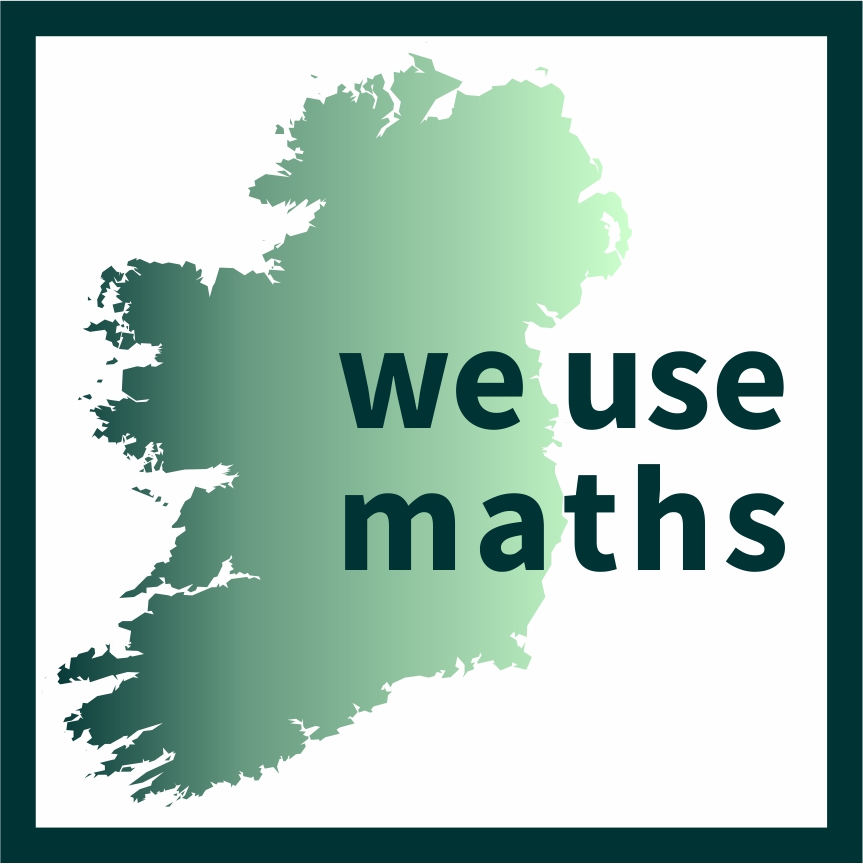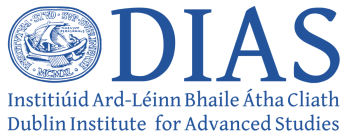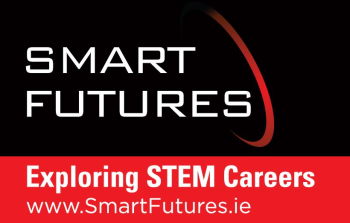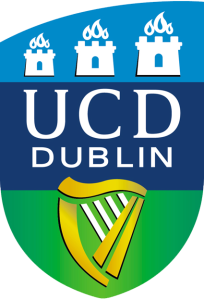Rory Scarrott:
Environmental Scientist
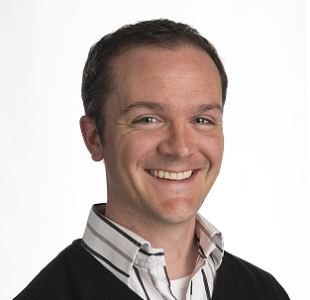 Your name?
Your name?
Rory Scarrott
Your job title?
Environmental Scientist based at UCC.
Where did you study?
Science UCC
What have been your main ‘career decision’ milestones so far?
Best “career decision” I made was to go to university as opposed to rejecting study altogether. Honestly, I didn’t like school much. I kept my head down and just did the work, but found the school environment really restrictive. I wasn’t a troublemaker or anything, just didn’t particularly like school.
However, I took to university like a duck to water! I stuck with the courses and modules I enjoyed, and got the best out of both the academic and social sides of university life.
Who influenced your career direction?
My father got me interested in natural sciences from an early age. Dad had a strong interest in the natural world and how it worked, and used to encourage myself and my brothers to question it too.
Secondly, my biology teacher in school (Mr Guiney) was a major influence in my choice of subjects in college, and my enjoyment of them. His passion and joy in studying and teaching biology and life sciences showed me how challenging and interesting the subject was, and I just never looked back really.
Lastly, my BSc final-year-project supervisor, Dr Harrison, convinced me over the course of many fieldwork expeditions (wandering through woodlands near Macroom collecting invertebrates) that working in the environmental science sector was where I wanted to be.
How did you go about getting your current job?
Story and a half! Building a career in the Irish environmental sector isn’t as clear cut as building one in accounting or in medicine. There are no consultancies lining up to take up fresh faced graduates, and you do have to work at it early on, and build yourself into your chosen career. Despite this, I can say for me it was worth it.
When looking for jobs, I noticed that positions in Ireland pretty much all demand a minimum of one year’s work experience. I did go for a few interviews in Ireland and the UK, but my lack of experience was a hindrance.
I had taken out a student loan to help cover my MSc costs, so I couldn’t exactly leave the country, the bank had to be paid back. I opted instead to work in a bar, but contacted companies, consultancies and research institutes looking for voluntary work experience. It was really dispiriting, but with hindsight it also meant that I got a feel for the industry and where I wanted to go.
After a few months, my offer of voluntary work was taken up by the Coastal and Marine Research Centre (CMRC) at University College Cork. I had a sound knowledge in GIS and ecology applications, and the institute’s director forwarded my CV on to some of the PhD students, one of whom contacted me with a few GIS queries to see if I could help out.
I came in once a week for a few weeks, talked him through the process, what he should consider, and in general provided technical advice and a sounding board for him to bounce ideas off. I also got the chance to do some of the basic processing work, and see the area he was working in.
Then his supervisor got in contact with me with a short (nine-week) opportunity to use satellite data to study peatbog extraction in Ireland. From there I’ve been moved from contract to contract, branching from studying peatlands to looking at phenology with satellite imagery, and on to more GIS jobs.
What’s cool about your work?
When people outside start using my conclusions and results. With the peatlands work I first started out in, a group who funded the project called Friends of the Irish Environment began using the maps of identified exposed peat, when engaging and explaining their position to governing authorities.
When this kind of action happens because of the work I’ve done, it really makes it worthwhile.
What’s not so cool?
Some people are good at some aspects of work, but woefully bad at others. I simply am not what I call a “computer person”. I see myself as being good at looking at systems, and putting the pieces together, but translating that into “computer-speak” is a challenge that I just have to grit my teeth and overcome.
What subjects did you do at school and how have these influenced your career path?
English, Irish, and Maths, then I took a language (French) and two sciences (Physics and Biology) and Geography.
In the end I had to cover biology, physics and chemistry in first year in UCC, but once in second year I could drop physics and chemistry and focus again on biology.
I don’t know if the subjects I chose really influenced my career path, I always did whatever subjects I found interesting (except in the case of Physics, but I figured I’d be more miserable doing Economics, and I didn’t qualify for Art unfortunately as it was not an option for me as a Junior Cert subject).
What aspects of your education have proven most important for your job?
Maths is undoubtedly vital for whatever science career you choose. It just pops up everywhere. I’m no maths-whizz, but I learned the fundamentals, and use them every day.
Obviously, doing a science subject you are interested in is vital. Through the Leaving Certificate Biology and Physics courses, I was exposed to a huge variety of different scientific disciplines. I didn’t like all of them, but I did like a few, and pursued these later in university.
Curiously, English stands out as having been really important for my career. It took me years to realise this, but every day I find myself using skills taught to me in English class to communicate my research clearly.
What type of maths do you use in your job?
Currently, probability (science is all about statistics), algebra, trigonometry, and BOMDAS! But the use of these isn’t restricted to the scientific research I do. For example BOMDAS is a saviour when doing budgets.
How do you use maths and why?
Well, I’m a scientist, so fundamentally, it’s applied maths based. If you say such a species has this trait, you have to prove it. We prove it using statistics. Same with the Earth Observation (satellite information applications) work I do.
When we are processing an image taken by a satellite, and are then extracting the information from it (for an ecology question, disaster information question etc.), we need to use maths to help extract the information! You need to use your trigonometry to figure out the angles of the satellite to the position on Earth, algebra to extract the information, and statistics to help with the extraction and ensure you can have confidence in the information extracted.
Weird thing is I genuinely use my Leaving Cert notes to understand all this and make sure I’m getting it right. And I did my Leaving Cert in 2001! But the fundamentals are laid down in Secondary school, and you apply them throughout your life.
Did you like maths at school and what advice would you say to a second level student studying maths?
Honestly, no, I didn’t like maths. I never had the mind for imaginary numbers and probability wrecked my head. It didn’t help that my mates in school were mostly maths-whizzes, whilst I’d be face-planting the text book in frustration.
Hindsight is a great thing though, as my advice would now be if you are not a natural for maths, work at it. It will stand to you, and help you throughout your life. Fair enough, I had to learn the hard way, break equations down, and figure them out.
However, because I did that I can use this knowledge of methods and how to break things down, and figure out equations covering atmospheric effects on sensor signals pretty quickly, and it stands to me now.
Don’t focus on whether you get the correct answer, but try and focus on learning from your mistakes and learn how to get the correct answer in future. The how is what you’ll benefit from.
What aspects of the mathematics curriculum or mathematics courses proved most important for your job?
I think all aspects of the curriculum have been useful so far.
I work in science and have to use knowledge from across the science spectrum, from physics to chemistry, to biochemistry, microbiology and onwards to ecology and global systems biology. I even had a stint looking at a quantum physics application last year and my mind was blown!
Of serious importance though is probability, trigonometry and algebra, (and BOMDAS) so lay those foundations now whilst in school so they’ll serve you for the rest of your life.
What have been the most rewarding events in your career so far?
Travelling around the Mekong Delta in Vietnam interviewing farmers about their rice crops, and joining their families for the autumn festivals… completely random, totally rewarding, and absolutely brilliant.
What kinds of work experience would provide a good background for this position?
Having worked with digital media is always a plus when it comes to looking at remote sensing data. I’ve also found teaching kids science is a great way to start off learning how to communicate what you know to others because if you’re not communicating well enough, a child will simply stop paying attention, and will make it obvious!
Seek out as many opportunities as you can to go on fieldwork surveys. And not just out in the mountains, but in urban environments too. Fieldwork is physically tough sometimes, but it’s great craic, and even now I jump at the opportunity to leave my comfy desk and go do fieldwork.
Voluntary work experience was crucial in my case. It proved to me I would like what I studied as a career, showed employers I was willing and able to do the work, and allowed me to build up a network of contacts to work with in the future.
What is your dream job?
Sir David Attenborough’s job is my dream job. He gets to travel the world, go to remote exciting places, and gets to see in person the incredible variety of life on this planet.
What are the three most important personal characteristics required for your job?
A sense of wonder at the world around you, a willingness to question, enquire, and learn as you go and an ability to see things not working as a result – “If it didn’t work, why didn’t it work?”
